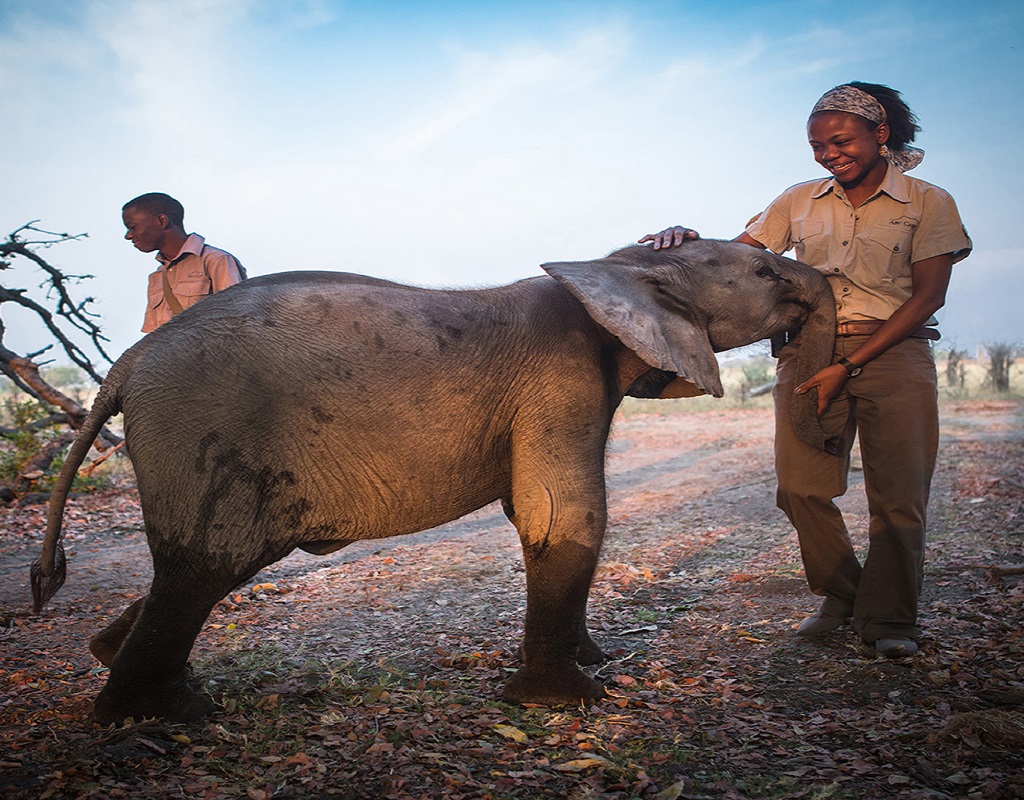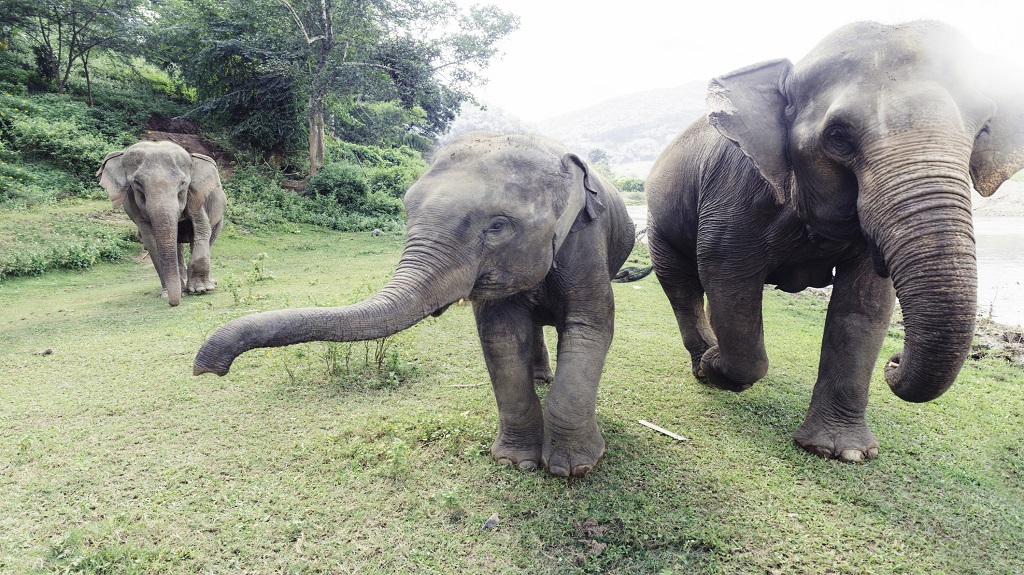According to NGO World Animal Protection, most tourists go on elephant rides because they truly love these giant mammals and wish to have a physical touch experience with them. Our Lynch Family’s various past elephant riding activities in Cambodia, Thailand, Bali, and South Africa were no exception to this general rule. While we enjoyed the rides, at the time we did not fully realize the extent to which we were contributing to the elephants’ physical harm and psychological stress. This type of tourist engagement, with these highly intelligent animals, has rightly come under scrutiny in recent years, due to the questionable animal welfare practices. Though trained to be ridden as working animals for centuries, many conservationist organizations have documented the cruelty involved in training elephants to give rides and perform for tourists. Similar to humans, elephants socialize, feel pain, sorrow, happiness, and more and while we understand and encourage the desire to see all animals, we feel it should be in a natural environment and in a nurturing way.

Elephant Tourism in Africa
Though commercial elephant rides in Asia have been common for decades, the first commercial rides in Africa began in Zimbabwe in the late 1990’s and spread throughout Southern African, now taking place at over 40 venues. Botswana currently stands out as a trailblazer for elephant rights among the region, having banned elephant riding country-wide in 2017. Botswana is now seen as the international protector of the African Elephant and has the world’s greatest herds! Camps like Abu camp in Botswana, truly stand out due to their steadfast commitment to humane elephant practices. Even though elephant populations are declining in the rest of Africa, Botswana’s population has grown from roughly 50,000 in the mid-1990s to over 130,000 today! Unfortunately, due to the increasing numbers, elephants have been wandering into villages and on farms in search of food, often destroying crops and actually killing over 28 Botswana residents so far. Because of this, Botswana’s President, Mokgweetsi Masisi, has ended the temporary ban on elephant hunting and feels the country must allow limited, local, and community-based hunting to resume to mitigate this problem. To read President Masisi’s full statement in the Wall Street Journal, click here.
Elephant Tourism in Thailand
When visiting Thailand, seeing the Asian elephant, the world’s second largest mammal, is a given, but over the past century, Thailand’s elephant population has dwindled from 100,000 to roughly 3,000/4,000 in population. This dramatic loss can be attributed to habitat destruction, poaching, and its abusive elephant tourism industry. Elephants have been documented to be living in cruel conditions and brutally beaten to submission for the benefit of tourist attractions including rides, circus-like painting sessions, and bathing.
With over 90 camps in the Chiang Mai region of Thailand, Chiang Mai is the core for elephant tourism. Its various camps now sit at a crossroads to either progress with the tide or choose to continue these inhumane practices. While some “riding” camps, like Patara, claim they are taking steps to ensure elephants meet a certain health standard, these standards meet a grey area.

An Authentic Elephant Experience Alternative in Thailand
Among all camps located near Chiang Mai, we strongly support Elephant Nature Park. Elephant Nature Park is located 37 miles from Chiang Mai and serves as a reputable rescue and rehabilitation center that provides an ethical living environment for rescued elephants, dogs, cats, water buffalo, and other animals. Since the 1990’s, owner Sangduen “Lek” Chailert, has rescued 200 elephants from the tourism and logging industry. The park currently has 83 elephants, 25 of which were rescued just last year from street performing and begging. Elephants roam freely across 160-acres relearning their natural environment and form. They can rest easy as they sleep in large pens, unlike most camps that chain their elephants at night.
Elephant Nature Park also participates in community outreach and the “Saddle Off!” initiative that welcomes other independent elephant camps for tours so they may improve the living conditions of elephants under their own camps. Visitors of Elephant Nature Park have the opportunity to appropriately interact with the 83 rescued elephants from immersive walks to viewing platforms. Ms. Chailert is currently in the process of also phasing out tourist feeding to reduce elephant stress.

